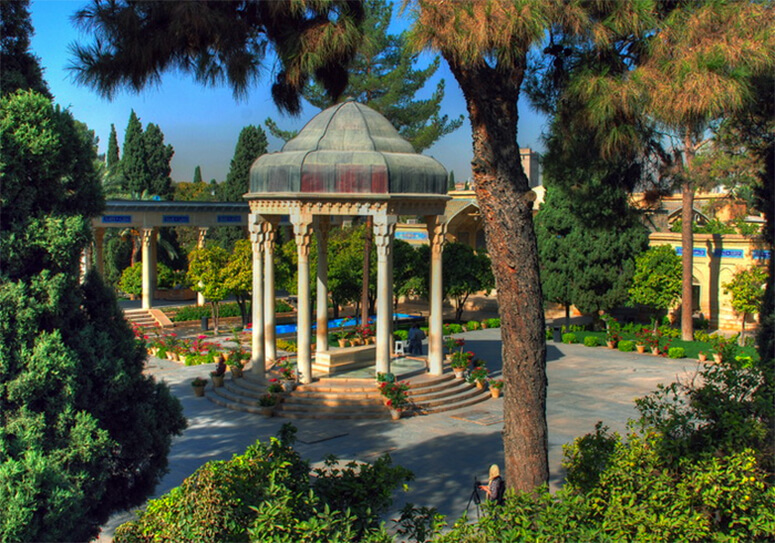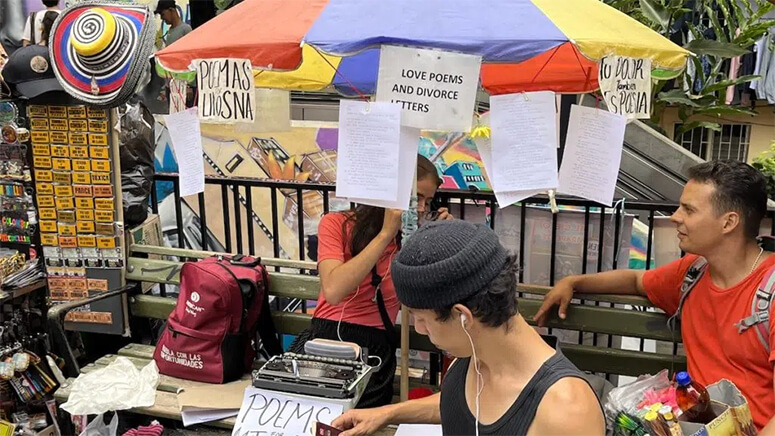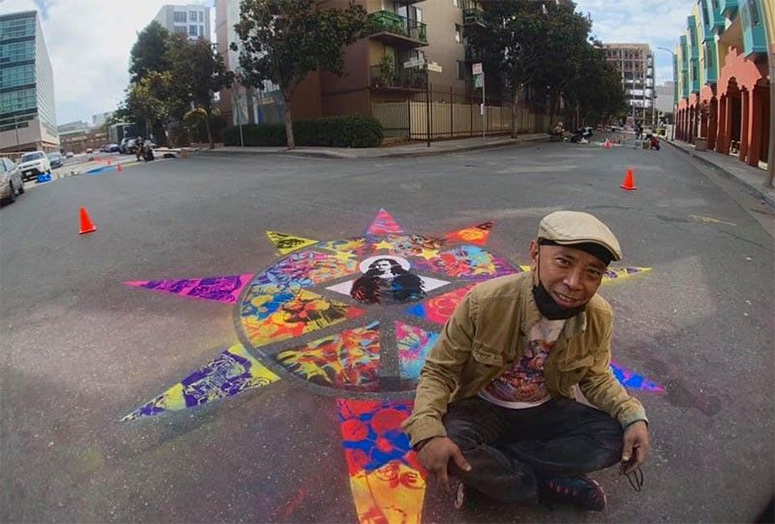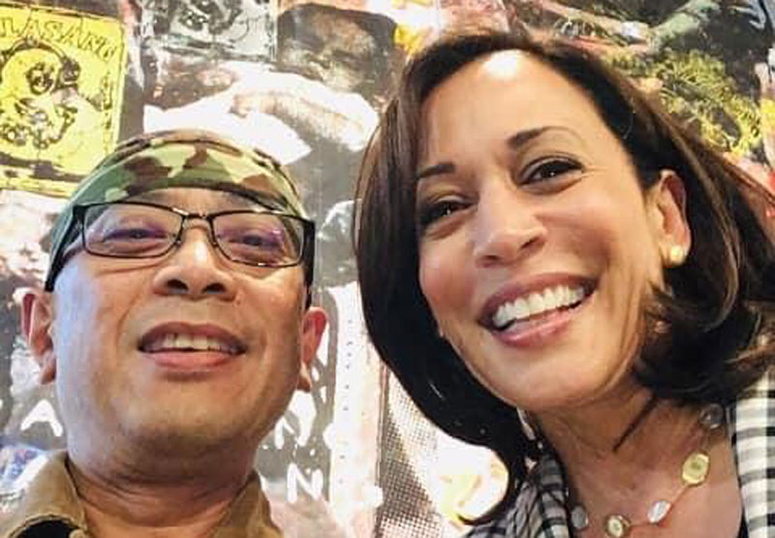Barely missing Kamala
You never know what you’ll luck into as a sidelight when participating in international literary festivals. For the World Congress of Poetry in Iran in 2013, the expected assemblies in Tehran spilled over to Shiraz for visits to famous poets’ mausoleums that draw a daily horde of devotees and students, plus a day’s trip to the fabled Persepolis where ancient ruins harked back to the glorious centuries of the Persian empire.
Thankfully, old Mesopotamia was free from any level of conflagration or tension at the time, allowing us to walk through fabled stretches of desert that still proudly showed off the hallmarks of an earlier civilization.

In Medellin, Colombia and Granada, Nicaragua, separate poetry festivals manifested how public appreciation of the lyric word can outlast the violence associated with drug cartels and arms shipments that become synonymous with the terrain. For a time, anyway. Now we can be grateful for the resumption of peace that allows aguardiente or “fiery water” to gin up a reading at a public plaza in Pereira, and the gaita flute to provide a jungle beat.

In Mukkula, Finland, and Durban, South Africa, the essential attractions remained the cultural strength that defined the environment. But unexpected perks included a midsummer day’s zany football match at bright midnight between the homegrown Finns and the RTW (Rest of the World) among the more sporting of the guests—poets and writers who were also marveling at the sunset that wasn’t.
And in Durban, the younger hosts became the “griots” or West African troubadours that performed the poems stored in their heads, to a rap beat, while the older “page poets” had to rely on traditional readings. The divide didn’t last long. The readers picked up the beat from the spoken word artists, after learning to draft long lines on their cellphone screens.

Near misses also become memorable. In 2019 while attending the PAWA or Philippine American Writers and Artists Book Festival in SF, old friends took me to visit the Pinoy legacy, Manilatown’s I-Hotel at one end up of Chinatown, where Fil-Am artist Mel Vera Cruz has been a leading light in regular exhibits. As I wrote about him in a follow-up column a year later, the historic building’s ground floor now serves as a civic center but is also often taken up entirely by an art gallery. In October 2019, the group show featured Mel’s impressive “Benny’s Altars,” in honor of a manong who had stayed in the old hotel in the 1970s.
Mel has been active with his street art community projects at San Francisco’s SoMa. These included blown-up bilingual flash cards displayed on 10 utility boxes at crosswalks. Mel’s designs simulated Filipino words spelled in baybayin, printed on vinyl, and pasted on the sides of the utility boxes.

As Mel’s luck would have it, California Senator Kamala Harris was invited to give a brief talk on recognizing the history of the Asian-American community. Fil-Am photographer Tony Remington introduced Mel as one of the artists, pointing towards the large diptych hanging some distance away.
“Shouldn’t we pose closer to your painting?” The cheerful lady who suggested that they move closer to Mel’s large diptych for photos was the former SF Attorney General. It wasn’t until a year later that Mel recalled he had a video clip on file with the subsequent US Vice President-elect genially voicing her suggestion.
Actually, I could have been in that fated company, but missed it by barely a week when I joined Mel to check out the permanent hotel room of poet-friend Oscar Peñaranda, who still entertained us in absentia with a counterpart to my whisky bottle. And PAWA’s closing evening social was also held at I-Hotel.
In the event that the world turns lucky soon, why, we could expect the presidential candidate who may have turned things around to check out the Asian-American community again. For this, the 7th PAWA, energetically spearheaded by Edwin Lozada, is slated to celebrate “Kaisa’t Kasama: Our Diverse Voices and Solidarity” on Oct. 12 and 13 at the main branch of San Francisco Public Library.
Starting well ahead of the festival was a special reading and celebration of premier poet Luisa A. Igloria’s new book Caulbearer, featuring her daughters Ina Cariño and Gabriela A. Igloria, on Sunday, Aug. 25, with the reading moderated by PAWA Press author Beverly Parayno. On Sept. 7, the 43rd Northern California Book Awards in Fiction will have its awards ceremony at the Library’s Koret Auditorium, with Parayno shortlisted for her debut story collection Wildflowers.
On the same day, across the Pacific, Oscar Gutierrez Peñaranda launches his new prose collection Follower of the Seasons on Saturday, Sept. 7 , 2-5 p.m., at Corinthian Plaza, Elks Club, 7th Floor, Paseo de Roxas corner Legaspi St., Makati.
I’d like to think that these positive literary developments bode well for a long-awaited reversal of miserable misfortunes in most of the world, and prevent a “weird coward” who’s never tasted sushi and sashimi despite his supposed sophistication from joining once again the number of autocrats plaguing political hotspots. Just seeing him on TV with the sound turned off should convince everyone that he’s everything all our parents and mentors told us to dissociate our character from the bluster, the lies, the bullying, intimidation, and shameful conduct.
Kamala Harris brings strong hopes of a return to decency and rationality. Why, even having had a near miss for a serendipitous encounter, at a literary event, no matter how brief, convinces me that some reversal of fortune may be due soon to reduce the sorriest of times.


